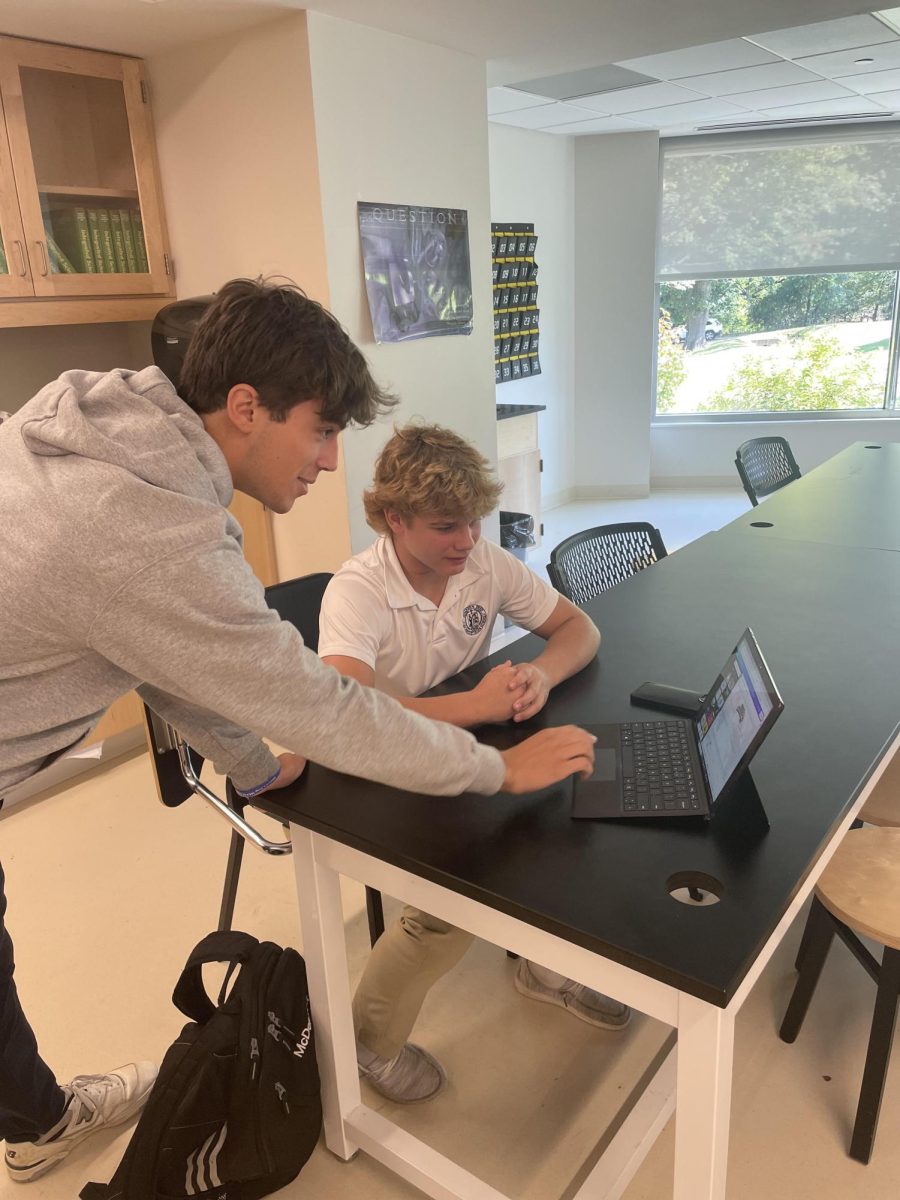Tweets may or may not contain factual information, so here’s how to find out the truth.
 According to CBS News, the second Presidential debate on October 9th was the most tweeted about debate of all time. Malvern students who chose to follow the debate on Twitter may have been a little bit confused when they saw what was trending.
According to CBS News, the second Presidential debate on October 9th was the most tweeted about debate of all time. Malvern students who chose to follow the debate on Twitter may have been a little bit confused when they saw what was trending.
“I didn’t watch the debate, but I remember checking Twitter during it. Most of the tweets I saw had nothing to do with either candidate,” junior Brendan Devine said.
CBS News stated that during the 90 minute debate, two of the top trending hashtags on Twitter were about a fly that flew in Hillary Clinton’s face and a man who asked the candidates a question named Kenneth Bone.
Malvern offers a Tech and Society class to teach students how to know what you read online and on social media is factual.
Junior Matt Davis is currently taking the Tech and Society class. “I’ve learned that you can’t always believe what you see online. One of the ideas that Mr. Harmatuk has taught us is the idea of C.R.A.P detection,” he said.
“C.R.A.P. detection stands for currency, reliability, authority, and purpose/point of view,” Tech and Society teacher Mr. John Harmatuk said. “It helps remind students that they can’t always believe what they read.”
“Twitter can be used as a great way to find out what is happening, but anyone can tweet whatever they want,” Harmatuk added. “Stories or statements can be tweeted out before being checked for facts.”
Davis said he uses the lessons from Tech and Society to figure out what to fact check.
“Tech and Society has taught me that if a Twitter account or website doesn’t look right or has a bad reputation, I should try finding the same story in other places before I fully believe it,” Davis said.
Sometimes it can be difficult to find a “good” Twitter account that you can trust. As Harmatuk noted, many stories and statements can be published without the proper fact checking. According to Boston.com, it may be best to follow individual reporters for live fact checking rather than a whole newspaper account.
However, all hope shouldn’t be lost. Some accounts do carry out their due diligence. According to our staff’s research, some of the best accounts for Twitter fact-checking follow.
According to their website, Factcheck.org is a “nonpartisan, nonprofit “consumer advocate” for voters that aims to reduce the level of deception and confusion in U.S. politics.” They dig into statements made by the candidates with regular updates on the accuracy of their statements.
PolitiFact is similar to @factcheckdotorg in that it tries to determine the validity of each candidate’s statement. It has been awarded the Pulitzer prize for National Reporting for its coverage of the 2008 election and had been a widely-accepted source ever since.
According to their website, “Share the Facts, developed by the Duke Reporters’ Lab and Jigsaw, offers a new way to share fact-checks and spread them across the Internet.” Their widget is actually used on the fact-checks published by the two previous accounts, @factcheckdotorg and @PolitiFact.
@share_trump and @share_clinton provide exactly the same service as @sharethefact just for each individual party candidate. @share_trump includes all the fact-checks of Republican nominee Donald Trump. @share_clinton updates their feed with all fact-checks of Democratic nominee Hillary Clinton.





